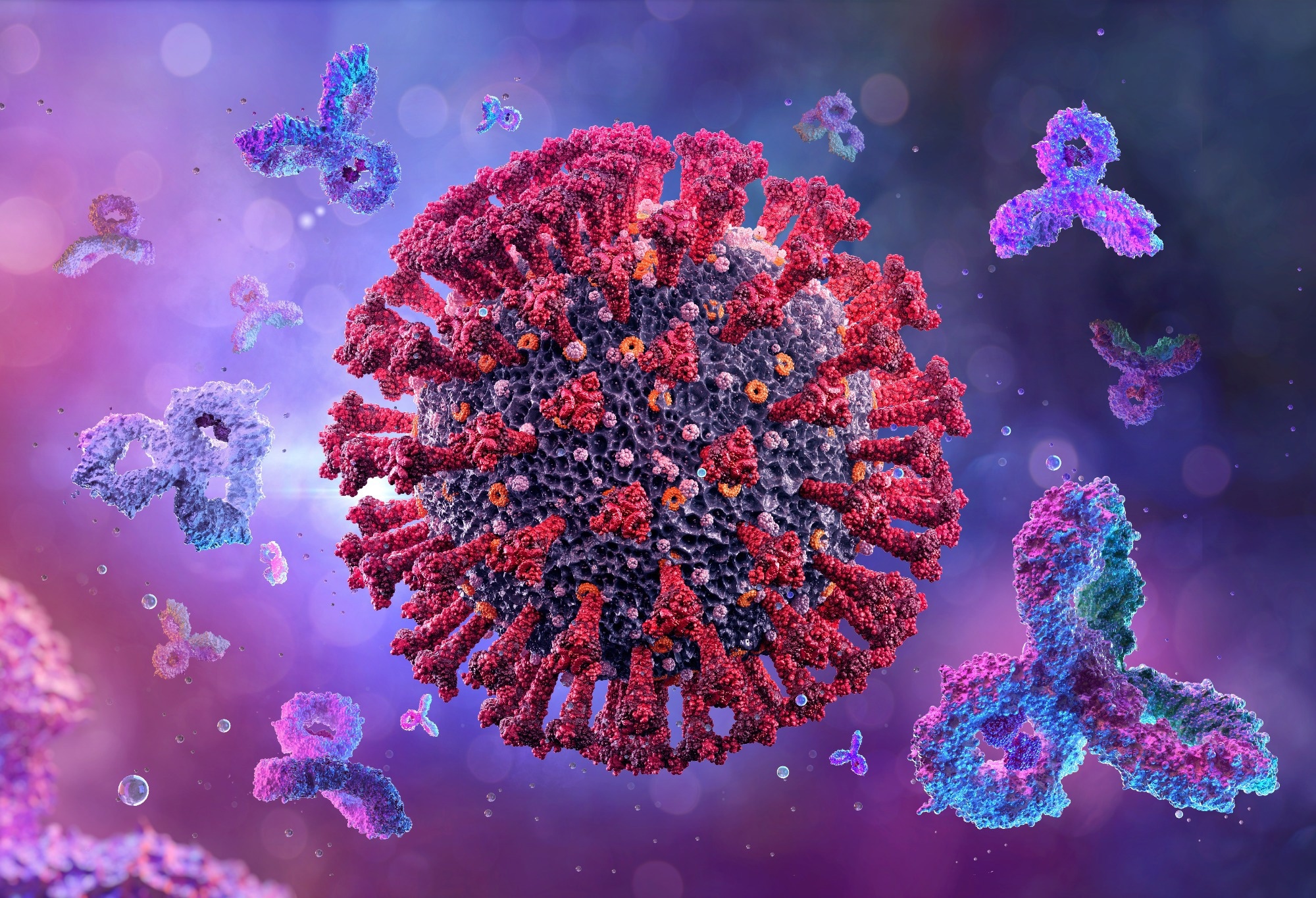In a recent study posted to the medRxiv preprint* server, researchers in the United States investigated the efficacy of a BNT162b2 severe acute respiratory syndrome coronavirus 2 (SARS-CoV-2) XBB1.5 variant-modified vaccination (Pfizer/BioNTech 2023-2024) in providing additional immune protection against coronavirus disease 2019 (COVID-19)-related hospitalization and ambulatory visits in individuals throughout the United States (US). They also investigated whether previous vaccine versions continued to protect individuals compared to no vaccinations.
 Study: BNT162b2 XBB1.5-adapted Vaccine and COVID-19 Hospital Admissions and Ambulatory Visits in US Adults. Image Credit: Corona Borealis Studio / Shutterstock
Study: BNT162b2 XBB1.5-adapted Vaccine and COVID-19 Hospital Admissions and Ambulatory Visits in US Adults. Image Credit: Corona Borealis Studio / Shutterstock

 *Important notice: medRxiv publishes preliminary scientific reports that are not peer-reviewed and, therefore, should not be regarded as conclusive, guide clinical practice/health-related behavior, or treated as established information.
*Important notice: medRxiv publishes preliminary scientific reports that are not peer-reviewed and, therefore, should not be regarded as conclusive, guide clinical practice/health-related behavior, or treated as established information.
The SARS-CoV-2 XBB lineage and its sublineages have circulated in the US from January 2023 onward. Improved monovalent messenger ribonucleic acid (mRNA) SARS-CoV-2 vaccines targeting the XBB1.5 strain have been authorized by the US Food and Drug Administration (US FDA) or individuals aged ≥6.0 months. Following the Centers for Disease Control and Prevention (CDC) preparedness guidelines, these vaccinations were made widely available in the US on 15 September 2023. However, the relationship between XBB1.5 lineage-adapted vaccinations and therapeutically relevant SARS-CoV-2 infection outcomes warrants further research.
About the study
The researchers of the present study evaluated the relationship between receiving the BNT162b2 2003-2004 formulation XBB1.5 lineage-adapted vaccination and SARS-CoV-2 infection outcomes in US adults.
The researchers examined the probabilities of receiving a BNT162b2 SARS-CoV-2 XBB1.5-modified vaccination among COVID-19 patients and SARS-CoV-2-negative controls registered with the Kaiser Permanente Southern California (KPSC) healthcare system between 11 October and 10 December 2023. The primary study exposure was a BNT162b2 SARS-CoV-2 XBB1.5-modified vaccine against no XBB1.5-modified vaccine, irrespective of previous COVID-19 vaccinations and a history of SARS-CoV-2 infections. The researchers also compared previous (non-SARS-CoV-2 XBB1.5-modified) COVID-19 vaccine versions to the absence of SARS-CoV-2 vaccination to determine the residual protection conferred by older vaccine versions.
Cases were individuals testing SARS-CoV-2-positive by polymerase chain reaction (PCR) during hospitalization, urgent care (UC), emergency department (ED), and outpatient contacts. The team confined PCR testing to those provided two weeks before the initial acute respiratory infection (ARI) exposure and three days after the interaction in patients and controls.
The trial began two weeks after XBB1.5 lineage-adapted vaccinations became available for KPSC members, and XBB sub-strains were mainly circulating. After mid-November, JN.1, a SARS-CoV-2 BA2.86 subvariant, began to co-circulate with a rapid rise in frequency. Participants had a one-year participation in a health plan to assess medical history and comorbidities. Patients with other medical issues were not allowed to participate in the trial. The team obtained data from the California Immunization Registry, which mandates healthcare practitioners to submit COVID-19 vaccines within 24 hours. They performed multivariate logistic regression modeling to determine the adjusted odds ratios (ORs).
Results
The SARS-CoV-2 PCR test found that 24,007 individuals out of 26,187 ARI encounters satisfied the research selection criteria. Eighteen percent tested SARS-CoV-2-positive, with 6.6% receiving the BNT162b2 XBB1.5 lineage-adapted vaccination. The vaccination was administered to 17% and 7.4% of individuals in the case (n=4,232) and control (n=19,775) groups, respectively. Among the participants, 93% had never received the XBB1.5-modified COVID-19 vaccination, and 11% did not have prior COVID-19 vaccination history. The median period after receiving the most recent prior dose of the COVID-19 vaccination among BNT162b2 SARS-CoV-2 XBB1.5-modified vaccine recipients was 363 days, and the mean period since receiving the XBB1.5-modified vaccination was 30.0 days.
The adjusted OR values for testing SARS-CoV-2-positive among individuals who obtained a BNT162b2 SARS-CoV-2 XBB1.5-modified vaccination (vs. those who did not receive any XBB1.5-modified vaccine) were 0.4, 0.4, and 0.4 for SARS-CoV-2 infection-related hospitalizations, UC/ED visits, and outpatient department visits, respectively. The BNT162b2 SARS-CoV-2 XBB1.5-tailored vaccination offered considerable added protection against various SARS-CoV-2 infection outcomes during XBB sublineages’ predominance, with JN.1 circulating. Irrespective of dose number and type, older COVID-19 vaccine versions provided negligible protection compared to no vaccination, including against COVID-19 hospitalization. Earlier COVID-19 vaccine version recipients did not have a significantly lower risk of SARS-CoV-2 infection-related outcomes, including hospitalization, than the unvaccinated.
SARS-CoV-2 seropositivity risk was similar across all groups, including recipients of BA.4 and BA.5-modified bivalent vaccines, no SARS-CoV-2 XBB1.5-modified vaccines, or three or two doses of the ancient SARS-CoV-2 strain vaccines without boosters tailored for SARS-CoV-2 variants. The results were broadly comparable across ages, with trends toward a higher risk reduction for outpatient contacts for those over 65 years. Labor, delivery, urgent medical treatment, surgery/neurosurgery, sepsis, and other medical disorders were the most prevalent causes of hospitalization in instances eliminated.
The study findings showed that COVID-19 vaccinations developed for XBB1.5 offered additional immune protection against SARS-CoV-2 infection outcomes. After 30 days, BNT162b2 SARS-CoV-2 XBB1.5-modified vaccine recipients had 63%, 58%, and 58% lower risks of hospitalization, ED/UC contacts, and outpatient visits, respectively. Most instances were almost certainly XBB sublineages. Older COVID-19 vaccinations provided minimal protection due to decreased immunity and ongoing SARS-CoV-2 evolution. Regular updates to COVID-19 vaccinations are crucial to maintain protection against the virus as it spreads.

 *Important notice: medRxiv publishes preliminary scientific reports that are not peer-reviewed and, therefore, should not be regarded as conclusive, guide clinical practice/health-related behavior, or treated as established information.
*Important notice: medRxiv publishes preliminary scientific reports that are not peer-reviewed and, therefore, should not be regarded as conclusive, guide clinical practice/health-related behavior, or treated as established information.